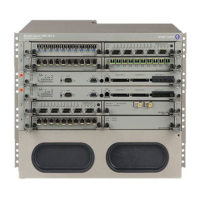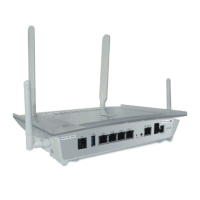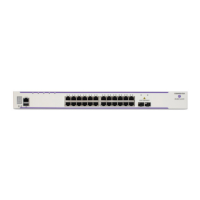Installing, Wiring, and Connecting an AC PSU
96 7750 SR-a4 and SR-a8 Installation Guide
AC-Input Power Supply Guidelines
Connecting the AC Power Cord to the PSU
There is one input AC power cord receptacle for each AC PSU. The AC PSU has an AC plug
inlet to accept an AC power cord. The other end of the AC power cord must have a plug that
can fit into the power source receptacle that is standard for your geographic region. Figure 28
shows how to connect the AC power cord. Table 41 describes the connections.
Danger:
• The AC power cord is not supplied and must be ordered to comply with local country
codes and the intended voltage. When applying power to the chassis, be sure to use an
approved AC power cord set, and ensure that you do not use any other product's AC
power cord set.
• AC units are rated 100-120 V or 200-240 V. For 100-120 V, you must use a cord rated
for a minimum of 12 A. For 200-240 V, you must use a cord rated for a minimum of 10 A.
• For AC powered units, use only power cords that have a grounding (earthing) path.
Main grounding (earthing) connection points are through the IEC60320 appliance inlets.
Grounding (earthing) points on the front of the equipment are for equipotential bonding
only and are not the safety grounding (earthing) points for the equipment. Lack of
correct grounding (earthing) of the equipment may result in a safety hazard and
excessive electromagnetic emissions.
Warning:
• If you ground the equipment by a method other than those provided in this manual, that
method should be in compliance with all local wiring regulations and practices.
• In order to comply with the GR-1089 Lightning Criteria for Equipment Interfacing With
AC Power Ports, an external Surge Protective Device is intended to be used at the AC
input of the router.
Note: To facilitate power redundancy, you must connect all PSU modules to an appropriate
source (see
DC-Input Power Supply Guidelines on page 100.)

